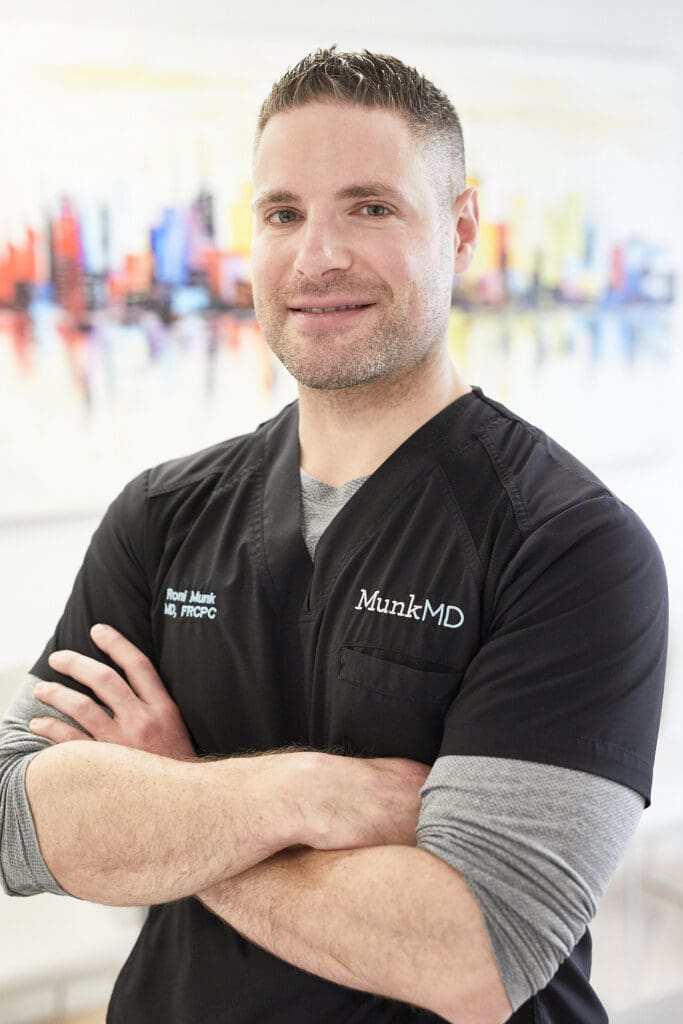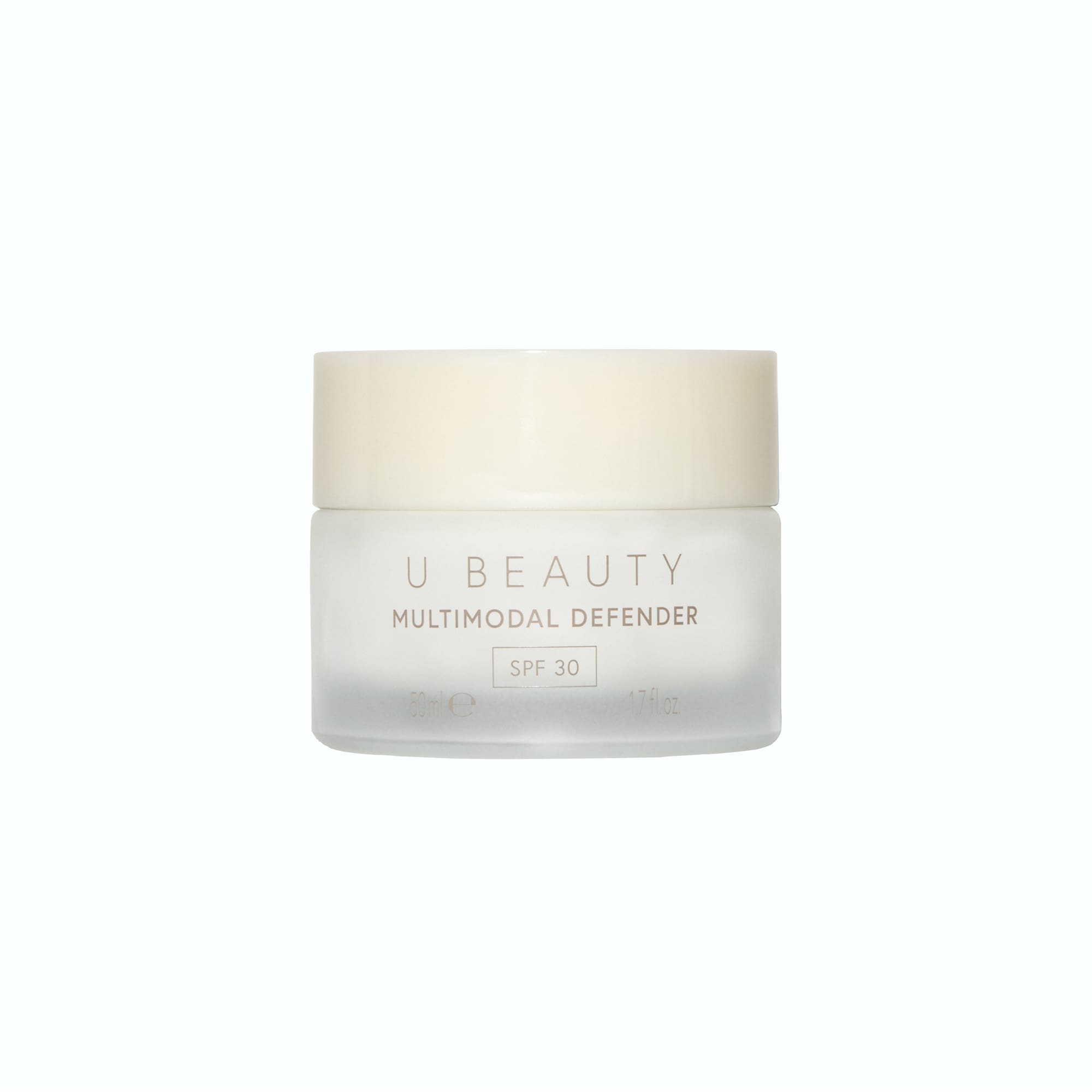As we (sadly!) approach the end of summer, our thoughts are turning to post-summer/sun skin recovery, including products and treatments that can help protect and treat damage done by extra time spent outdoors. In fact, fall/winter is the ideal time to work on repairing any skin damage or concerns due to our decreased sun-exposure and, when it comes to products that can help, U Beauty’s Multimodal Defender SPF 30 combats past and future photo-damage, while simultaneously brightening, cooling and protecting the skin. Thanks to the brand’s double patent-pending SIREN Capsule Technology, it visibly reduces hyperpigmentation, dark spots, heat-induced freckles and fine lines while offering strategic protection against UVA, UVB, IR (infrared) and HEV (blue light) exposure. The classic SIREN Capsule—found in the award-winning Resurfacing Compound—is paired with the brand-new SUN-SIREN, which contains an innovative illuminating molecule that safely inhibits melanin synthesis. Delivering photoprotection, tone evening, and antioxidant defence while improving overall intra-skin condition and visibly improving skin’s appearance. Additionally, we chatted with cosmetic dermatologist Dr. Roni Munk, an expert on some of the industry’s leading treatments for sun-damaged skin, for more tips on how to prevent and protect against sun-damage, and beyond. —Vita Daily

Hello Dr. Munk! Please tell us a bit about yourself to start.
I’m Dr. Roni Munk and I’m a board certified dermatologist from Montreal, Quebec. I’ve been practicing for nearly 10 years in clinical practice. I did my training at McGill University in dermatology and then subsequently specialized in laser and cosmetic dermatology at the University of Ottawa. I then came back to Montreal, started my own practice and recently have joined the Dermapure network to be able to offer my patients the best quality care in cosmetic dermatology.
What is some of the seasonal-specific damage summer weather and activities do to our skin?
Summer is an interesting time because, of course, we’re cooped up in our houses throughout the year, especially here in Canada. We crave that summer heat and sun and we want to be outside all the time, but we know that the sun can actually have negative effects for our skin, for ageing and for our health. So there is a balance that we need to try and achieve because I believe that the sun is very important for our circadian rhythms and for our happiness, so it’s important to be outside and do the activities we love, while also being responsible. We know that ultraviolet radiation is carcinogenic and can result in immunosuppression and cancer progression, so it’s imperative for us to be aware of all these factors and stay responsible. Protection goes without saying, so wearing a daily, broad-spectrum sunscreen in order to ensure adequate protection against both UVA and UVB is very important. You also have to ensure that you’re reapplying these sunscreens every few hours because their protection won’t last all day. On top of that, I always recommend to my patients that they add an antioxidant to the skin, because on top of ultraviolet rays, there are other damaging elements in our environment that we need to protect against – things like pollution, smog, and blue light from our devices. So between the use of a broad spectrum sunscreen (preferably mineral based) and antioxidants, we can really provide a good protection of the skin. However, it is not a perfect protection, so on top of that, as much as possible, we must make sure that we also wear protective clothing, hats, sunglasses and do our best not to be directly exposed in the sun for extended periods of time.
When it comes to this damage, are there things we can do, during and after summer, to correct/repair/soothe? What are your top care tips?
I think the biggest thing here is really prevention, however, no matter what we do, there’s going to be damage. There are things that you can do on a regular basis however, to ensure you have good quality skin. Treatments such as photo rejuvenation use light and energy devices to improve and rejuvenate the skin. If you do these kinds of treatments on a regular basis, you can definitely keep up with sun damage and treat it regularly which will definitely impact the aging of the skin and ensure that you have a much healthier complexion. If you have skin texture changes from sun damage, there are some energy devices and lasers such as fractionated technologies, microneedling, and radiofrequency that can definitely help smooth out the skin and reverse the biological age of the skin. I also really love using injectables, like Botox and fillers to really help improve skin age (as long as they’re done tastefully). My top care tip though is to be proactive. Our skin actually starts aging from the early age of 20, where we start losing 1% of our collagen every year. So being proactive, making sure you’re using the right protective products and seeking out treatments early on can definitely help treat and improve skin over the years.
Products like U Beauty’s Multimodal Defender SPF 30 are said to combat past and future photo-damage, while simultaneously brightening, cooling, and protecting the skin. How do these kinds of products work?
Products are definitely very important for overall skin health and of course, there are different ingredients that will do different things. If you’re using antioxidants, for example, Vitamin E, Vitamin C, or Ferulic Acid, these will help combat some of the reactive oxygen species and damage that will impact the DNA of our skin cells and age our skin cells. Sunscreens will help provide protection against ultraviolet light and the damaging effects of UVA on the DNA, but then there are other ingredients like brightening ingredients that can also have a fantastic effect. Ingredients such as Arbutin, Hydroquinone and Vitamin C will help lighten up the complexion and improve pigmentation issues like brown spots. Exfoliants like Retinol and Glycolic Acid will enhance cell turnover and ensure that the skin doesn’t get clogged up and is always looking healthy. What’s ideal is to use products that combine various ingredients together so that you can get very impressive combined results over the long run. What I tell people though is that topical products are kind of like exercise, meaning they’re only effective when you use them, so you really have to be very consistent with them to see the benefits. It’s also a marathon, not a sprint, so you’re not going to get results with a cream in a day or in a week. But if you use them regularly, over months and months or years, you are going to see tremendous benefit and improvement in your overall skin health.
What are some other leading treatments for sun-damaged skin?
The most popular treatments for sun-damaged skin really are a combination of things. In my practice, we have treatments that are very mild, like photo rejuvenation where there’s very, very little downtime but it still very nicely treats red tones, brown tones and skin quality. There are treatments like Fraxel, Thermage and Ultherapy that will improve the texture of the skin. We sometimes use fractionated ablative technologies like CO2 lasers, which can be more aggressive but essentially give you fresh, new skin and require fewer treatments to get a given outcome. However, there is significant healing with many of those treatments. Additionally, we’re also currently using injectable treatments to actually improve the quality of the skin. There are hyaluronic acid injections that aren’t even fillers because they don’t volumize or lift, but they’re purely used as little droplets all over the skin to rehydrate and draw water into the skin to help plump it. There are also even natural treatments like PRP (Platelet Rich Plasma) where your platelet rich plasma is infused in the skin, which will actually remodel and renourish the collagen to improve the quality of your skin. So the truth is, there are so many different options available today on the market, which is why the best way for you to reach your skin objectives is to book a consultation with your expert or physician so that they can help you design a tailored program for your skin type and skin concerns.

Be the first to comment